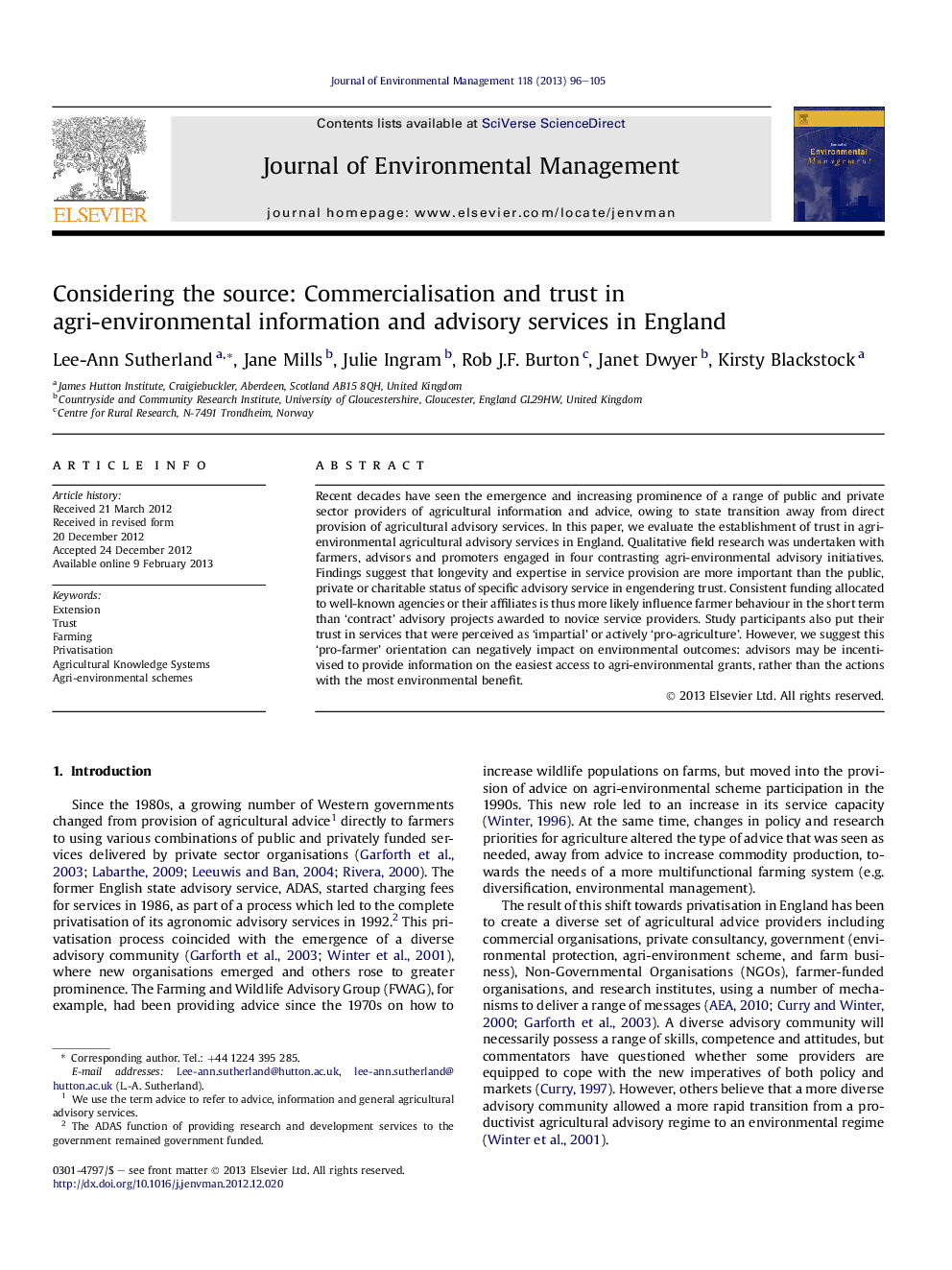| Article ID | Journal | Published Year | Pages | File Type |
|---|---|---|---|---|
| 1056459 | Journal of Environmental Management | 2013 | 10 Pages |
Recent decades have seen the emergence and increasing prominence of a range of public and private sector providers of agricultural information and advice, owing to state transition away from direct provision of agricultural advisory services. In this paper, we evaluate the establishment of trust in agri-environmental agricultural advisory services in England. Qualitative field research was undertaken with farmers, advisors and promoters engaged in four contrasting agri-environmental advisory initiatives. Findings suggest that longevity and expertise in service provision are more important than the public, private or charitable status of specific advisory service in engendering trust. Consistent funding allocated to well-known agencies or their affiliates is thus more likely influence farmer behaviour in the short term than ‘contract’ advisory projects awarded to novice service providers. Study participants also put their trust in services that were perceived as ‘impartial’ or actively ‘pro-agriculture’. However, we suggest this ‘pro-farmer’ orientation can negatively impact on environmental outcomes: advisors may be incentivised to provide information on the easiest access to agri-environmental grants, rather than the actions with the most environmental benefit.
► Opening environmental practices to scrutiny is a risk for farm managers. ► Respondents build trust over the long term with advisory services. ► Respondents mistrust the ‘hidden agenda’ of advice from commercial businesses. ► Trust is based on perceived institutional competence. ► ‘Commercialisation’ of advice favours profit over environment.
